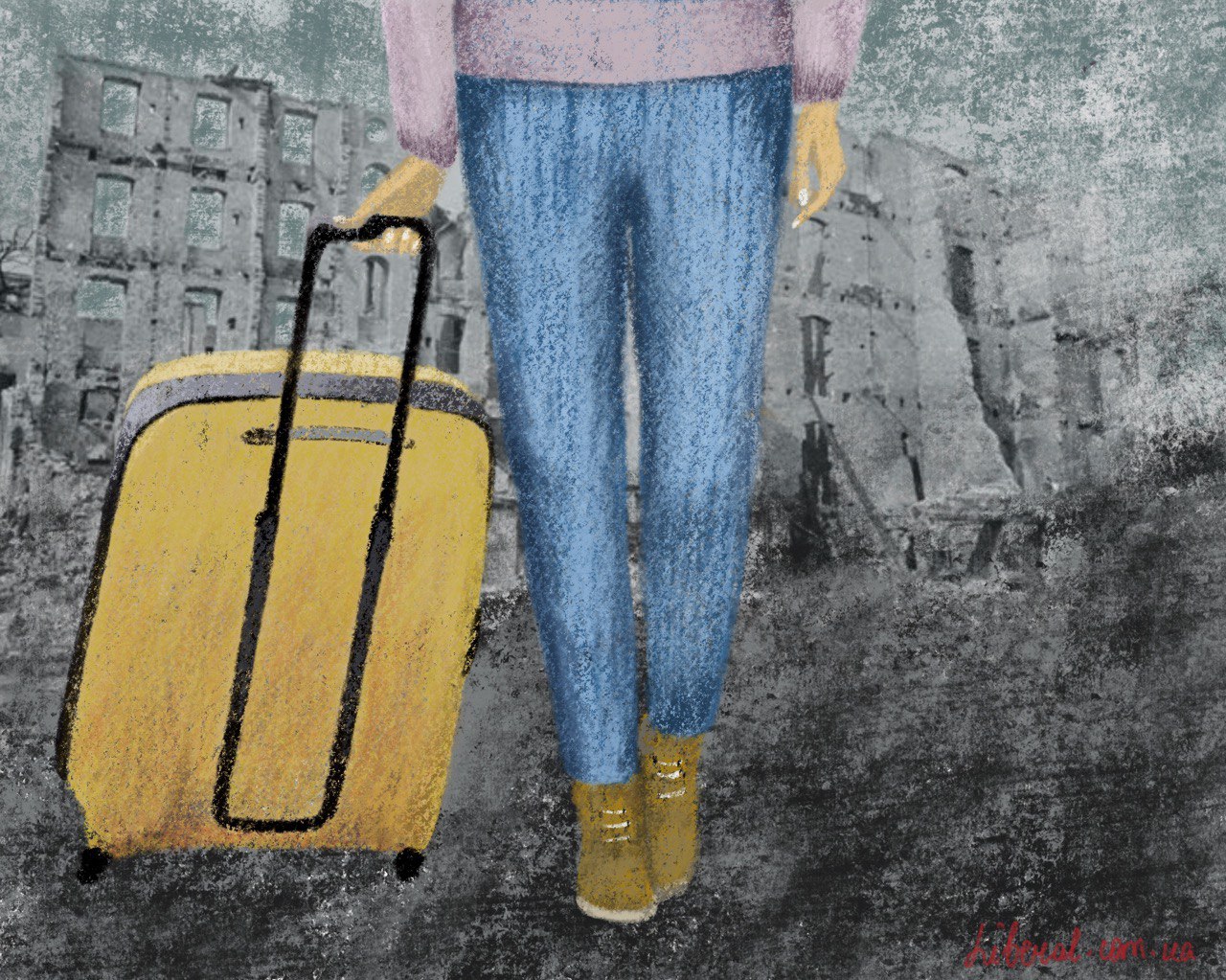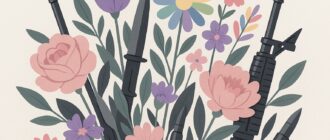Before the war, my generation had been considering it to be good form to move to the EU, catch on and settle in there. But I always wanted to live in Ukraine. I’m a war refugee. In the first week after the full-scale conflict I moved to Europe. I was afraid. For the seven months of war I’ve been to the Slovak and Czech Republics, Poland, Germany, and France. Until I‘ve found a place to shelter. It seems that during that time I told my history like hundred times. I’m grateful to everybody who listened. At the same time I remember the changing in meaning I’ve been putting in this story of mine, the degree of frankness, the emotion, willingness to share my grief, and how the focus shifted in the phrase: “My country is at war.”
What do I mean when I tell the Europeans that “My country is at war.”? That I left my home, but every night I wake up at 5:30 trying to find the unfinished book on bedside table. In the room I had been furnishing for several years, a place I called home in the city that had at long last become mine. That when I watch clouds in the sky, I still keep in mind that a missile could burst in any moment. That the lives uprooted are counted in the millions, and the lives lost – in the hundreds of thousands. And a part of the lives uprooted is tied to the life of mine. That the places I used to know are turning to ruble, and that now I know how a cutaway of an apartment building looks like – concrete, bricks, insulations, some hanging wallpapers… The insides of a building and a human’s insides. That there’s so much pain accumulated, that no words have left. There are no tears or feelings left either. The only thing left is a haze like from pillars of dust and smoke from an explosion. That we, trying to save ourselves, have turned into animals. We’re divided into packs of different sizes, and we mercilessly destroy the others. In our anger we eat the others, mutilate their bodies, and eliminate their thoughts and their place in the world. We are lost, scared, and angry.
To scale back the lyricism, (which has been too much within the past seven months), the fact is, that a country at war is, among other things, an economic hell. This part of wartime reality doesn’t make your blood run cold; it doesn’t remind you of an action horror with suspense and juicy frightening scenes. It rather resembles a cheap drama B-movie with a sour smell. According to the National Bank of Ukraine, since the beginning of war, the state’s unemployment rate reached 35%. If the Ukrainians were unable to go abroad, staying home in search of a job, this percent would have been even higher. By the end of the year, consumer inflation is projected at 30%. Everything is expensive. We still have vegetable gardens and relatively cheap farmer’s markets as our lifesavers. However, the first autumn cold has reminded us that the summer is gone, together with the warm season and inexpensive vegetables. No money’s coming in, and we have to “figure something out”. The state has traditionally withdrawn from the issue, well, after all, they have other tasks to cope with, while the European countries have graciously offered the Ukrainians a temporary shelter, social benefits, medical insurance, integration language courses, and, more importantly, a work permit.
Picture a middle-aged woman, say, from Cherkassy, where it is calm and quiet for now, with two grown-up kids. She’s been diligently working at the warehouse or on construction sites, or maybe she’s been a metrologist at the plant. Her monthly salary was 4,000 – 6,000 UAH, which is less than 200 Euros, and the money is depreciating with every day, while the prices are sky rocketing. In the news they speak about hospitality of the Europeans, logistics for the Ukrainian refugees, and volunteers, who are always there to give a helping hand, plus there’s 300-400 Euros of the monthly social aid. This woman never dreamt of a cup of coffee in Vienna, her life was in other Universe. In her Universe it was all about exhausting labor and saving every penny for herself. For her, Europe now is the opportunity to work. She puts on her bracelet colored in the Ukrainian flag, the documents, some clothes, teams up with her friend or two (it’s always easier than to be alone, and they can rent an apartment and split the payment), and off she goes somewhere away from her city. Where exactly? She’ll figure that out along the way. She’s in no rush to integrate, neither she’s hanging out in chat rooms named “the Ukrainians in the city of N”, she’s rarely reposting the horrors of war to the Instagram, she’s not looking for a master of manicure or a colorist, she doesn’t have to send a child to school. She seeks for a job in the harvest, or as a hotel maid, or as dishwasher in a restaurant, or she’d go to unload vegetables at the wholesale market… Minimal hourly rate is about 10 Euros, some 350 a week, more than a thousand a month. … Well, not much, the calculation is rough, and the prospects are dim. But she is able to save and knows the value of money. She speaks of politics in general terms, while scepticism and frustration would put her on a very thin ice. Her nephew was mobilised, and money to buy his military equipment was raised from all of her acquaintances. The question: “Where do we donate our money for the Ukrainian Army, when we have to buy everything ourselves?” remained unasked. On the other hand, she can now enjoy weekends, walks in a park, beautiful European architecture, and have a chance to live a little for herself.
The longer the war continues, the more such economic female migrants will be welcomed by Europe. There is no precise statistics as of yet. No analytics either. So far, there are tragedies of people being shoved out by their own country. An all of us are trying to live with that.






